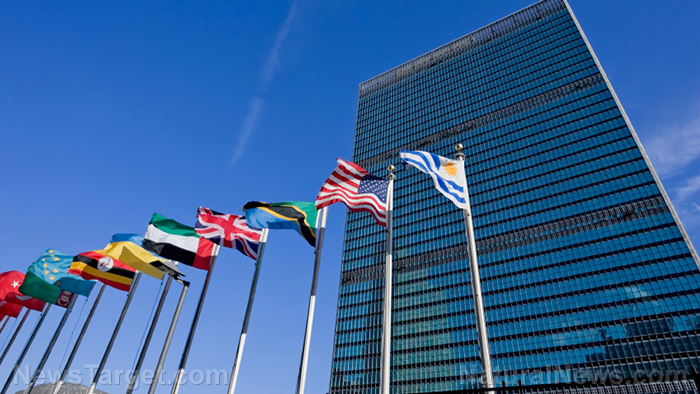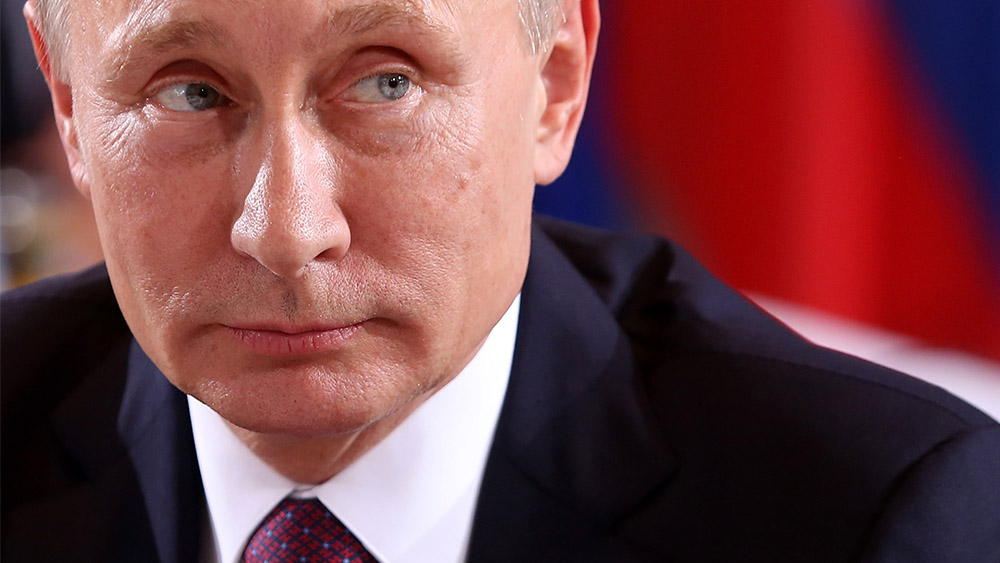 Parler
Parler Gab
Gab
- The UN’s International Maritime Organization (IMO) is set to impose a carbon tax on shipping fuel, ranging from 19 to 150 per ton of CO2 emissions, potentially doubling fuel costs for cargo ships.
- The Biden administration backed the 2023 IMO GHG Strategy, but Trump officials are now fighting to block enforcement, warning it will worsen inflation and hurt working-class families.
- The U.S., as the world’s largest importer, would bear the heaviest burden, raising prices on food, fuel and clothing—while China, the top shipbuilder, stands to benefit.
- The Trump administration is threatening tariffs, visa bans and port fees against nations supporting the tax, while pushing for Senate approval before any UN tax takes effect.
- Critics argue the tax is not about climate but globalist control, designed to weaken U.S. economic sovereignty while enriching UN bureaucracies.
How the UN’s carbon tax would hit American wallets
The proposed carbon levy, set at 19 to 150 per ton of CO2 emissions, would force shipping companies to pass costs onto consumers, driving up prices for essential goods. Analysts predict fuel costs could double, adding hundreds of billions in expenses to global trade. Since the U.S. imports more goods than any other nation, the economic fallout would be disproportionately severe, hitting working-class families hardest. Meanwhile, China—the world’s largest shipbuilder—stands to profit from the new regulations, as demand for "green-compliant" vessels surges. Critics argue the tax is another example of global elites leveraging climate policy to redistribute wealth and weaken U.S. sovereignty.Trump’s last-ditch effort to stop the tax
The Trump administration is deploying an aggressive strategy to block the IMO’s carbon tax, including:- Threatening trade sanctions against nations that support the measure
- Demanding Senate ratification before any UN tax is enforced
- Pushing for an "explicit adoption" rule, requiring countries to reaffirm support before implementation
Climate policy or global power grab?
The IMO’s carbon tax is framed as an environmental measure, but critics see it as a stealth wealth transfer to UN bureaucracies. The proposed "Net Zero Fund" would collect billions annually, with vague promises to support "green shipping innovation" and "climate justice" in developing nations—raising concerns about corruption and mismanagement. Historically, UN-led climate policies have prioritized centralized control over national sovereignty, and this tax follows the same pattern. With global inflation already surging, the additional financial burden could destabilize economies while doing nothing measurable to reduce global temperatures.A fight for economic freedom
The UN’s shipping carbon tax is not just another climate policy—it’s a direct assault on U.S. economic independence. By driving up costs for businesses and consumers, it would weaken America’s position in global trade while empowering unelected globalists to dictate financial policy. The Trump administration’s resistance marks a critical stand against taxation without representation. If successful, it could halt the UN’s power grab and protect American families from another wave of inflation. But if the IMO pushes forward, the U.S. may face a stark choice: submit to globalist control or withdraw entirely from the organization. One thing is clear—this battle is far from over. Sources for this article include: ClimateDepot.com EENews.net WSJ.comRussia unveils nuclear-powered missile as U.S. weighs economic measures amid global tensions
By Finn Heartley // Share
Chinese military now utilizing AI to prepare AUTONOMOUS WAR MACHINES
By Lance D Johnson // Share
Over 10,000 Ukrainian troops trapped as Russian forces secure key positions
By Belle Carter // Share
Utah’s new digital ID promises privacy, but is it building the ultimate tracking tool?
By Lance D Johnson // Share
U.S. deploys surveillance drones over Gaza amid fragile ceasefire
By Belle Carter // Share
Scientists challenge materialist dogma, explore PANPSYCHISM, or CONSCIOUSNESS as fundamental reality
By Lance D Johnson // Share
Governments continue to obscure COVID-19 vaccine data amid rising concerns over excess deaths
By patricklewis // Share
Tech giant Microsoft backs EXTINCTION with its support of carbon capture programs
By ramontomeydw // Share
Germany to resume arms exports to Israel despite repeated ceasefire violations
By isabelle // Share










